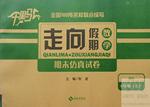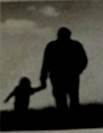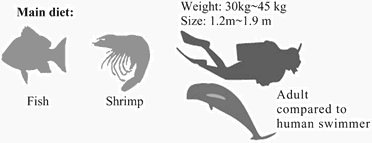
【题目】写作
假设你是某英语报社的一名记者,最近作了一次“学生双休日活动”的问卷调查,请根据下列图表中的调查数据,以“A Survey About Weekend Activities” 为题,用英语写一篇短文,简单介绍调查情况并发表自己的看法。
注意:①短文应包括所给内容要点,可适当发挥,使文章连贯;
②词数80左右,短文开头已给出,不计入总词数;
③文中不得提及考生所在的学校及自己的姓名;
④参考词汇:对……作调查make a survey of;
参加周末辅导班 take weekend classes;
A Survey About Weekend Activities
The students don’t go to school on Saturdays and Sundays. Well, what do they do on weekends?……
【答案】The students don't go to school on Saturdays and Sundays. Well, what do they do on weekends? The other day, I made a survey of how the students spend their weekends. I find that 40% of the students take weekend classes. About 25% of them like to chat online or play computer games. 20% of them prefer to watch TV or listen to music, while 10% of them help their parents do chores. Only a small number of them play sports.
I don't think it's a good idea to take weekend classes. And students shouldn't spend too much time watching TV, chatting online or playing computer games. They should do more sports, learn to develop interests and try to do some chores.
【解析】这是一篇应用文写作,根据图表中的调查数据,围绕A Survey About Weekend Activities这一话题,简单介绍调查情况并发表自己的看法。


 千里马走向假期期末仿真试卷寒假系列答案
千里马走向假期期末仿真试卷寒假系列答案科目:初中英语 来源: 题型:
【题目】阅读理解B
One morning a boy went home with his father. They noticed a pair of old shoes by the roadside. They thought the shoes might be a poor man's. In fact, the owner of the shoes was working in the field nearby, and he had nearly finished his work.
The boy said to his father, "Let's play a trick on the man—we hide his shoes, and wait to see what he will do when he can't find them."
"My boy, we should never have fun by tricking other people like that," answered his father. "Instead, let's put a coin in each of the shoes, and watch he will do."
The boy did so, and then they hid nearby.
The man soon back to get h is shoes, but when he put his foot into one of his shoes, he felt something in it. He bent(弯曲)down and found the coin.
Surprise appeared on his face. He looked at the coin for a minute, and then looked around, but nobody could be seen. He then went on to put on the other shoe, but he was even more surprised to find the second coin.
He then went down on his knees, looked up to the sky and said thanks aloud. He said his wife was ill and his children were hungry. He wanted to buy some bread for them.
The boy was deeply moved.
"Now," said his father, "you must be much more pleased than if you had played your trick."
The boy replied, "You have taught me a lesson which I'll never forget. Now I understand these words, which I didn't understand before: It is more blessed(神圣的)to give than to receive."
(1)How did the boy want to deal with the shoes at first?
A.To hide the shoes.
B.To steal the shoes.
C.To put coins in the shoes.
D.To return the shoes.
(2)How many coins did the man find?
A.One.
B.Two.
C.Three.
D.Four.
(3)What would the man do after he got the coins? He would ______.
A.give them to his wife
B.buy a pair of new shoes
C.give them back to the boy
D.buy some bread for his family
(4)At last, the boy knew ______.
A.it was funny to play tricks
B.it was good to help each other
C.it was better to give than to receive
D.it was wrong to put coins in the shoes
查看答案和解析>>
科目:初中英语 来源: 题型:
【题目】The blue jeans _______ 50 dollars. And that black pair of jeans _______ 60 dollars.
A. are; costs B. are; cost
C. pay; are D. spend; is
查看答案和解析>>
科目:初中英语 来源: 题型:
【题目】Why ________ your brother want ________ the koalas?
A.do;to see
B.does;to see
C.does;see
D.do;see
查看答案和解析>>
科目:初中英语 来源: 题型:
【题目】阅读短文,回答问题
话题 | 体裁 | 词数 | 难度 | 建议用时 |
动物保护 | 说明文 | 109 | ★★ | 5分钟 |
RIVER DOLPHIN RUNNING OUT OF TIME
The Yangtze dolphin is the only kind of dolphin that lives in freshwater all its life. Scientists say that the finless freshwater dolphin that has lived in the Yangtze River for over 20 million years, will die out in 15 years. It’s in danger of disappearing forever.
Dangers:
■Dredging(挖掘) of their habitat
■Heavy boat traffic in the Yangtze River
■Insecticide(杀虫剂) and mercury(汞)

(1)How long has the Yangtze dolphin lived in the Yangtze River?
A.For 20 million years.
B.For less than 20 million years.
C.For more than 20 million years.
D.For about 20 million years.
(2)What is NOT a danger to the Yangtze dolphin?
A.Dredging the river bed.
B.Boats in the river.
C.Insecticide and mercury.
D.Swimmers.
(3)How heavy is an adult Yangtze dolphin?
A.30 kg.
B.45 kg.
C.30 kg~45 kg.
D.75 kg.
(4)What does the Yangtze dolphin mainly eat?
A.Fish and shrimp.
B.Fish.
C.Shrimp.
D.Grass.
(5)In the first picture, the underlined word “finless” means _______ in Chinese.
A.有鳍的
B.无鳍的
C.温顺的
D.好看的
查看答案和解析>>
科目:初中英语 来源: 题型:
【题目】(2013广东湛江)—Why not ________ to the park now?
—Good idea!Let’s go.
A.go
B.to go
C.goes
D.going
查看答案和解析>>
科目:初中英语 来源: 题型:
【题目】He is playing _________ football, but she is playing ______ flute.
A. the ,the B. /,the C. the ,/
查看答案和解析>>
湖北省互联网违法和不良信息举报平台 | 网上有害信息举报专区 | 电信诈骗举报专区 | 涉历史虚无主义有害信息举报专区 | 涉企侵权举报专区
违法和不良信息举报电话:027-86699610 举报邮箱:58377363@163.com